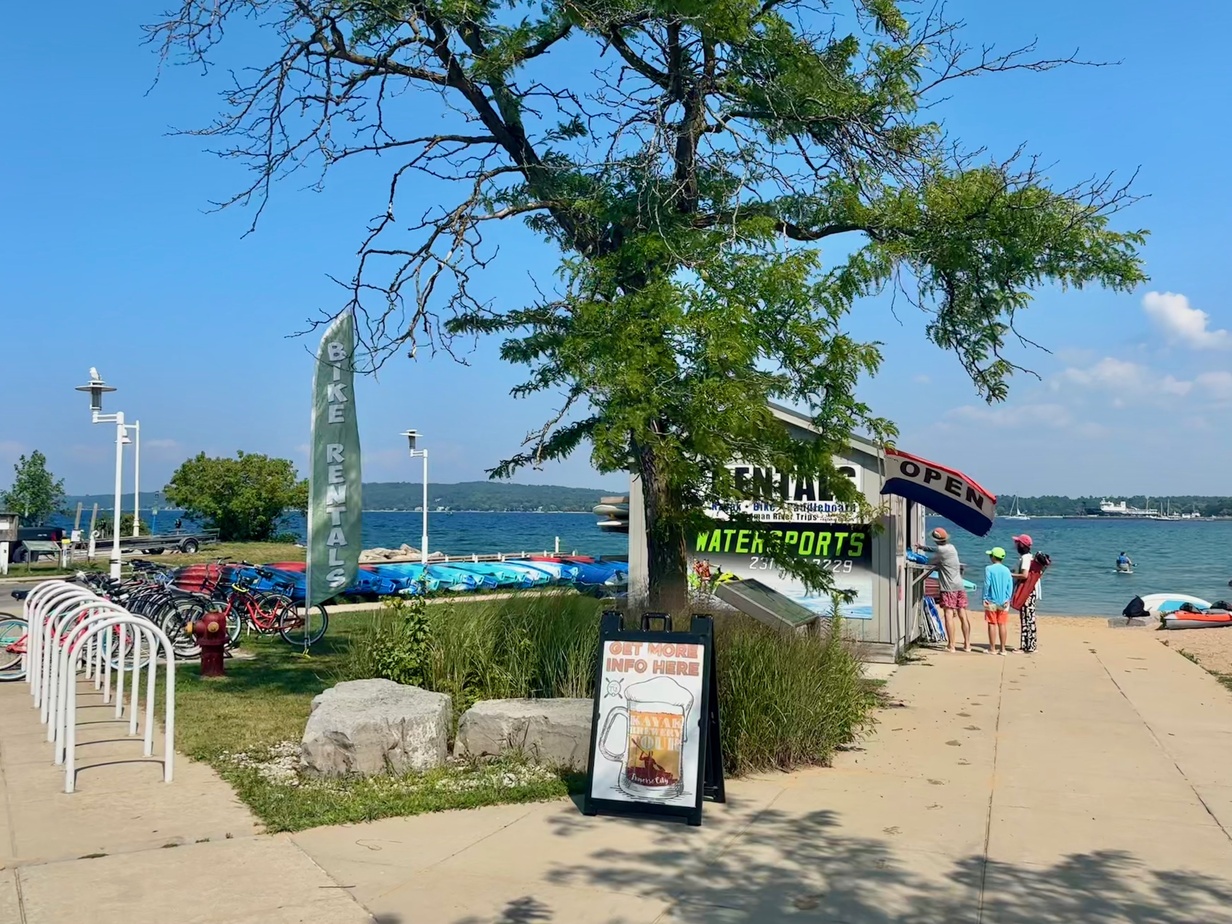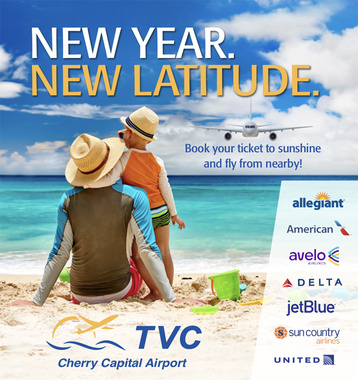
TC Parks & Rec Talks Usage, Fees for City Parks
By Beth Milligan | Aug. 15, 2025
Traverse City Parks and Recreation commissioners are tackling several issues related to the future of city parks – including how and when commercial operators can use park space and whether ticketed events should be charged a higher fee than free events to use city property.
City commission discussions this spring on how businesses like Paddle for Pints and Kayak Bike & Brew – both run by Kayak Bike & Brew LLC– can use city parks and how much they should be charged for doing so are being revisited by Parks and Recreation as the city works to create a formal policy ahead of next year’s tourist season.
Parks and Recreation commissioners discussed the topic of commercial use of city parks at their August 7 meeting. According to a memo from Superintendent Michelle Hunt, the city currently maintains three agreements with private businesses to operate in city parks. Kayak Bike & Brew LLC has paid an annual fee averaging between $40,000 and $50,000 from 2020 through 2024 to run its kayak, paddle, and bicycle brewery tours downtown using Hull Park, Lot D, and Clinch Park. This year, the company negotiated a one-year deal with the city to pay a $30,000 fee in exchange for a reduction in participants and with the understanding future years remain an open question mark as the city works to create its new policy.
The city contracts with two other vendors to run businesses in parks, both of whom operate in Clinch Park: Paddle TC to run equipment rental operations and Kayak Kafe to run concessions. Both vendors have paid the same fees to the city since 2022, starting at $25,000 in 2022 and modestly increasing each year to $28,941 this year. They’ll each pay $30,388 in 2026 to operate at the downtown beach, the last year of their existing contracts. As those contracts come up for renewal, Hunt acknowledged a challenge for Parks and Recreation is that there “isn’t a standard” for what the city charges for operator fees or how it determines which companies can operate in parks and under what parameters.
Proposed business uses in parks can vary from small-scale offerings – such as occasional dog training, yoga, or dance classes – to food truck vendors interested in posting up at a city property for the summer (say, Bryant Park) to a sauna business maintaining a winter operation near the lake. All of those are potential uses that have come up for consideration, Hunt said. She hopes to create not only a standard approach for approving uses and their associated fees, but parameters to ensure vendors are charging fair-market rates to customers and offering services that are “accessible, affordable, in demand, and desirable.”
Parks and Recreation Commissioner Scott Morey said one main consideration could be whether a potential offering is something that users would normally be seeking or expecting at a park that an outside vendor could provide more efficiently than the city. Concessions and kayak rentals are examples that make sense when viewed through that lens, he said. Brewery tours? Perhaps not so much. However, Morey acknowledged the investment Kayak Bike & Brew LLC has made into its business – which frequently sells out tours all summer long – and suggested it could be grandfathered in depending on the parameters set by the city.
Hunt said she’d take commissioners’ feedback to put together a draft matrix that could be used to evaluate commercial operators, which will be discussed at the board’s September meeting. Discussion is likely to continue across multiple Parks and Recreation meetings this fall, with a proposed policy to eventually head to city commissioners for review.
Related to park usage, Parks and Recreation commissioners also discussed fees for high-impact events – such as major festivals using the Open Space – and whether they should vary based on being an open event (free to the public/accessible to all) or a closed ticketed event (entry restricted to paying attendees).
Parks and Recreation Commissioner Paul Wilkins proposed differentiating the two categories, pointing to three upcoming high-impact events as examples. While TC Food & Wine is using the Open Space for multiple high-end ticketed events, the Ragnar Relay and Up North Pride are providing open access to spectators/attendees at the same park, Wilkins said. However, all “currently pay the same fees, despite significant differences in public access and purpose,” he wrote in a memo. Wilkins found that challenging to justify, particularly “when I look at the appropriateness of the name of the Open Space, and then it’s a closed event,” he said.
Parks and Recreation commissioners agreed to discuss the issue further, with Morey noting that perhaps maintaining some element of public accessibility could be part of the criteria when reviewing high-impact event applications. Some festivals – like the National Cherry Festival – have both free and ticketed events within their model, another factor to be taken into consideration.
Conversations about park usage and fees connect to a larger effort Parks and Recreation is currently undertaking, which is updating its master plan. Hunt noted that survey postcards are about to be mailed to every city household, with an online survey also available to gather resident feedback on current and future usage of parks. Parks and Recreation is also working with an ad hoc committee of city commissioners – including Tim Werner, Heather Shaw, and Mitch Treadwell – to finalize a recommended list of park funding priorities for a Brown Bridge Trust Fund ballot proposal going to voters in November. An online survey is now live to gather resident feedback on the list, with both Parks and Recreation and city commissioners to approve the project priorities prior to the election.
Comment







